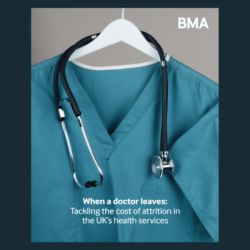HealthManagement, Volume 11, Issue 3 / 2009
This is the inevitable question in light of the low turnout at this year’s European Parliamentary elections. The reasons for this lack of motivation to participate in the democratic political structures of the EU are certainly manifold; doubtlessly the expectations that citizens place in the EU play a large part. Press commentaries and public opinion polls reported a lack of interest to the point of euroscepticism.
The expectations behind these attitudes would rather see the restriction of the radius of European politics and subsequently limit their direct influence on people’s lives. Proponents of this attitude tend to see Europe as an affliction rather than something positive. Others are disappointed in the EU, as Brussels is unable to avoid economic crises or create more jobs. One proportion of eurosceptics consists of citizens whose view of the EU alternates between a panacea, a preferably free selfservice centre or a rubbish dump that will dispose of their problems – again free of charge, of course. Advocates of the EU have a different mindset. They know that the largely peaceful co-existence of our continent’s countries since the end of the last world war was promoted and secured by European coalescence. They know that the current economic and financial crisis would have been worse without the euro and that without a European representation of national interests the states would virtually be ignored as global players.
Admittedly these arguments do not wholly convince even European hospital managers; here too, opinions diverge. On the one hand there are those who believe their hospitals to be better served in the care of their respective national states, fearing disadvantages for their institutions by a European harmonisation of national laws and regulations. Others realise that such a harmonisation implies a current lack of political will – or one too weak – of national states. Even the democratically elected EU parliament and a European Commission, composed of European Member States, are unable to enforce new political positions against the will of the EU countries, even when political expertise is convinced of their long-term necessity.
Hospital managers are also familiar with the long and winding road of a harmonisation process, which due to the existing differences in the European hospital landscape can only be taken one step at a time anyway. But the key issue is the managers’ conviction that a strong hospital lobby will actually help shape these steps. And this is also the main motivation for these players to make sure the interests of their institutions are discussed on a European level. Another incentive is getting to know one another and learning from one another. Executive functions, especially in clinics, have undergone a massive change, starting with changes of hearts and minds of our patients and co-workers – accompanied by changes in behaviour and expectation – concerning everything from advances in medical technology to national regulations of hospitals. This very often entails a drastic loss of income. Even if this change manifests itself differently from country to country the similarities are there too.
The challenges of this transitional period are often managed differently by executives, and the achieved results reflect this variety. A benchmark between hospitals would make it easier to adopt successful management methods by exchanging experiences – something already conducted on a national level. The national associations of hospital managers could also promote this approach of mutual learning for their members, as many of our members have already done with considerable success. Apart from lobbying on the European floor, this is another task that EAHM performs as the umbrella organisation of hospital managers in Europe. We do our utmost to fulfil these tasks, aided by our regular working groups, our congresses, seminars and by our journal (E)Hospital. In bringing together colleagues from different countries we are creating a forum able to mediate significant advantages for our institutions. We are also creating the basis for a larger identification with Europe that is not imposed upon us by political structures, but rather we form these structures from the foundations.
A little bit more of Europe, understood correctly and converted into daily life, is not only indispensable in the long run – it is also advantageous for all.
Willy Heuschen
EAHM Secretary General
Editor-in-Chief


















